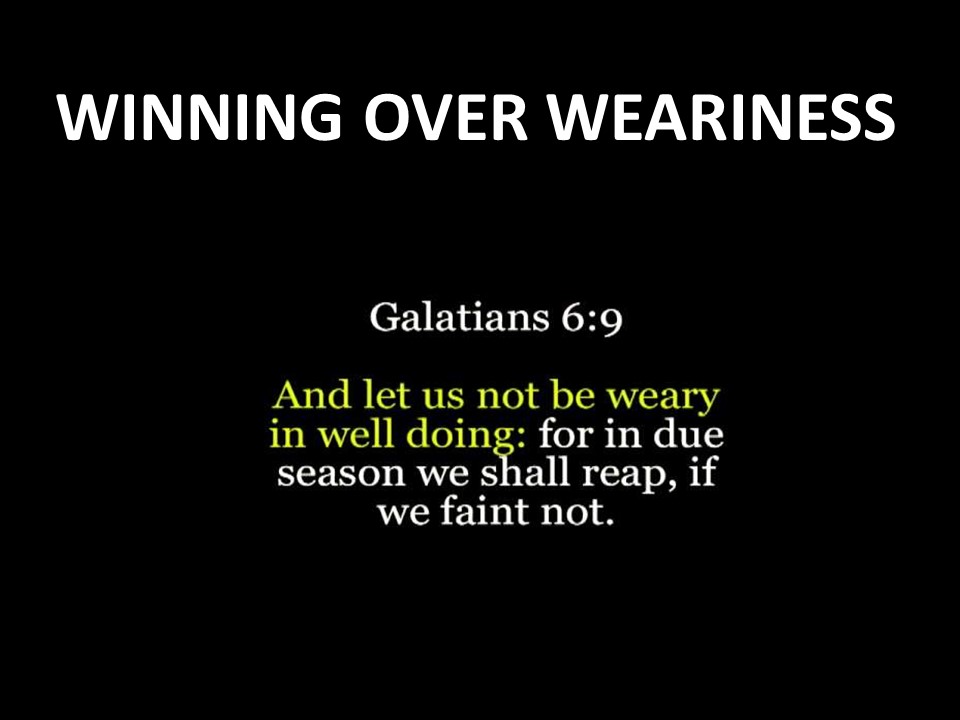"Forasmuch then as the children are partakers of flesh and blood, he also himself likewise took part of the same; that through death he might destroy him that had the power of death, that is, the devil; And deliver them who through fear of death were all their lifetime subject to bondage." (Heb 2: 14-15)
The fear of death (thanatophobia - from two Greek words, thanatos and phobos, death and fear) is what puts people on to various "coping mechanisms" to deal with that fear. Though each person has his or her own way of how to mentally handle the thought of death and dying, nevertheless there are commonalities among the ways people deal with the thought of dying.
Doubtless it is universally true that coming to realize that we will one day die is not a pleasant thought or state of mind. It naturally produces angst, fear, and even panic. So, the question next becomes - "what am I to do in view of this realization?" How can I ever be relieved of the fear of dying, of the afterlife (if there be any)? of being judged by God (if I might be)? How can I find mental relief (shelter or refuge) from the dreaded thought of death and dying?
Religion offers various ways to cope with the knowledge of inevitable death and with the judgment that may follow it. So does pop psychology. So too does philosophy. None can, however, give real peace and deliverance from thanatophobia. That can only come through the teachings of the holy bible, from what God reveals therein about death and Hell, from the Holy Spirit of God.
There is an organization called "Overcoming The Fear of Death" and its page is (here). Their purpose is stated in these words:
"WE ARE DEDICATED TO HELPING ALL PEOPLE IMPROVE THE QUALITY OF THEIR LIVES NOW — IN THE PRESENT — BY OVERCOMING THEIR FEAR OF DEATH"
"Overcoming" one's "fear of death," is a pregnant expression. Fear is viewed as a power or entity (enemy) as well as death itself. They involve two different battles, one with death itself, and one with the fear of death. The scriptures address both these enemies, both these battles. Death is overcome through Christ, affirms the scriptures. He died and was resurrected by his own power. He now "has the keys of death and Hades." (Rev. 1: 18) By his resurrection and power he has freed from both death and the fear of death those who believe. That is what the text says at the heading of this posting. But, more on that text shortly. The same web page says:
"Our objective is to help all people — no matter what their beliefs are — to reduce or eliminate their fear of death. So they can free up otherwise wasted energy to be refocused and better used in enjoying one’s daily life. To live life more fully now in the present."
So too does the religion of Jesus Christ and the gospel message have such as an objective for those who realize their mortality, and have fear about an afterlife and a judgment. The only way to be liberated from slavish fear of death and judgment is by seeing Christ as a worthy Savior and trusting in his redeeming and resurrection power, and believing his word and promise. When Christ and his teachings are believed, they fortify the soul against tormenting fears of death and judgment.
Said the same web page:
"While we work with clients of all ages, religions and backgrounds, we specialize in working with those who have often tried everything else that have failed to provide them with solutions to their mental, emotional, physical or spiritual challenges. We also specialize in helping end-of-life clients transition from their physical body to whatever happens next — by giving them techniques, understanding and support so they move through their end-of-life transition without fear or anxiety."
What a tough job! Who is the one who can give the right counsel on this fear? God is in the business of giving his counsel on the matter. Sadly, so too is the Devil. Satan is skilled in the counsel he offers to death fearers, designed to keep them from seeking and finding God's counsel.
Some people are afraid of everything associated with death, such as bodies, graves, funeral parlors, ghosts, etc. Others aren't scared of skeletons or the dying but fear their own mortality instead. Necrophobia is a fear of the dying, rather than fearing the actual act of dying happening to them. I have never had a fear of grave yards or cemeteries. When I was a small child, we lived across the street from a very large old cemetery and my sister and I used to play in it a lot, read the tombstones, hang on the crosses. I was also not too afraid of being around dying people, as I worked with them when I worked in the hospital for a couple years.
Another web article I read in study for this series is titled "What It’s Like to Learn You’re Going to Die" wherein "Palliative-care doctors explain the “existential slap” that many people face at the end." It is written by Jennie Dear (here). She says (emphasis mine):
"Nessa Coyle calls it the “existential slap”—that moment when a dying person first comprehends, on a gut level, that death is close. For many, the realization comes suddenly: “The usual habit of allowing thoughts of death to remain in the background is now impossible,” Coyle, a nurse and palliative-care pioneer, has written. “Death can no longer be denied.”"
Of course, the bible has a lot to say about this "existential slap," the realization that we must die and stand before God. One such verse is this -
"And as it is appointed unto men once to die, but after this the judgment: so Christ was once offered to bear the sins of many; and unto them that look for him shall he appear the second time without sin unto salvation." (Heb.9: 27-28)
"After this the judgment" is a thought that has entered the minds of all thinking mortals since humans first began to die. That thought is often dreadful and terrorizing. Whether one becomes a slave to the fear of death, or lives without it, is of chief concern. Also, what solutions to the problem of death and judgment in the afterlife do dying man cling to for "mental shelter" from the torrential storm of fear?
Wrote another author on our subject (See here):
"Thanatophobia is a disorder characterized by an extreme fear of dying. Because necrophobia and thanatophobia are similar phobias, many people get the two confused.
Although they do have a lot of similarities, the two disorders have a significant difference. People struggling with thanatophobia may not be afraid of dead bodies, coffins, and can even attend funerals. The thanatophobia fear isn't centered around the death of others but the possibility of dying themselves. People with thanatophobia have related symptoms like the fear of flying and also the aging process.
There might also be an underlying fear of being buried or cremated after death. In a medical setting, thanatophobia is commonly called "death anxiety" and requires behavioral therapy to help restore a client's trust and ego integrity."
"Behavior therapy" for inordinate fear of death? The bible teaches that the only real therapy for such a phobia and anxiety is to experience salvation. Only by being reconciled to God can one find salvation in all its facets. One facet involves a person's "hope," with his or her expectations in regard to dying, with his or her beliefs about death and the afterlife. The bible has a lot to say about right hope versus false hopes.
Believers are said to have been given and acquired a "good hope through grace." (II Thess. 2: 16) The apostle Peter also said that those who have been "begotten again" through God's "abundant mercy" have been born to a "living hope through the resurrection of Jesus Christ from the dead." (I Peter 1: 3-4) Or, more precisely, "to a hope that is vibrantly alive through the resurrection of Jesus Christ."
Hopes about death and the afterlife, if they do not rest upon Jesus Christ, the one who conquered death and who has the "keys of death and Hell," are dead hopes, vain hopes, mere wishes, or as God describes through Isaiah, in the text we are considering, as being mental or psychological "refuges of lies." These false ideas about death and the afterlife serve as places the mind of unbelievers retreat to when storms of fear and anxiety about death and dying flood the soul.
The living hope Peter speaks about is based upon the belief and confident expectation that the believer has regarding the afterlife and eternity, which hope is "unto an inheritance incorruptible and undefiled and that does not fade away, reserved in heaven for you." (vs. 4) Believing that this is one's predestined future, for good reason, surely delivers one from the slavish fear of death.
Said another source (See here emphasis mine):
"For thousands of years, philosophers have been talking about the topic of death with all of the vigors of religious thinkers.
Fascination with death has occurred throughout human history, characterized by obsessions with death and all things related to death and the afterlife. In past times, and present, people would form cults around death and figures. Famously, Anubis, Osiris, Hades, and La Santa Muerte have all had large cult followings. La Santa Muerte (Saint Death), or the personification of death, is currently worshiped by many in Mexico and other countries in Central America. Day of the Dead (2 November) is a celebration for the dead.
The ancient Egyptians are most famous for their fascination of death by mummifying their dead and building exquisite tombs, like the pyramids of Giza, for their dead. Many of their deities were death-related, such as: Ammut, the devourer of unworthy souls; Anubis, the guardian of the Necropolis and the keeper of poisons, medicines, and herbs; and Osiris, the king of the dead."
We see this same type of fascination with death in many today. Think of Halloween and the popularity of it today! A day when death is celebrated, conquered, or made friends with. In fact, it may be that our modern Halloween traditions not only identify us with the ancient Egyptians and other primitive pagan societies, but with death cults.The cult of the dead was prominent in ancient Egypt, and it generally involved a person securing a good afterlife either for themselves or for immediate relations.
In the next and final posting in this short series, we will have more to say on all this.
Let me hear from you if you have some insights into the text in Isaiah 28.




